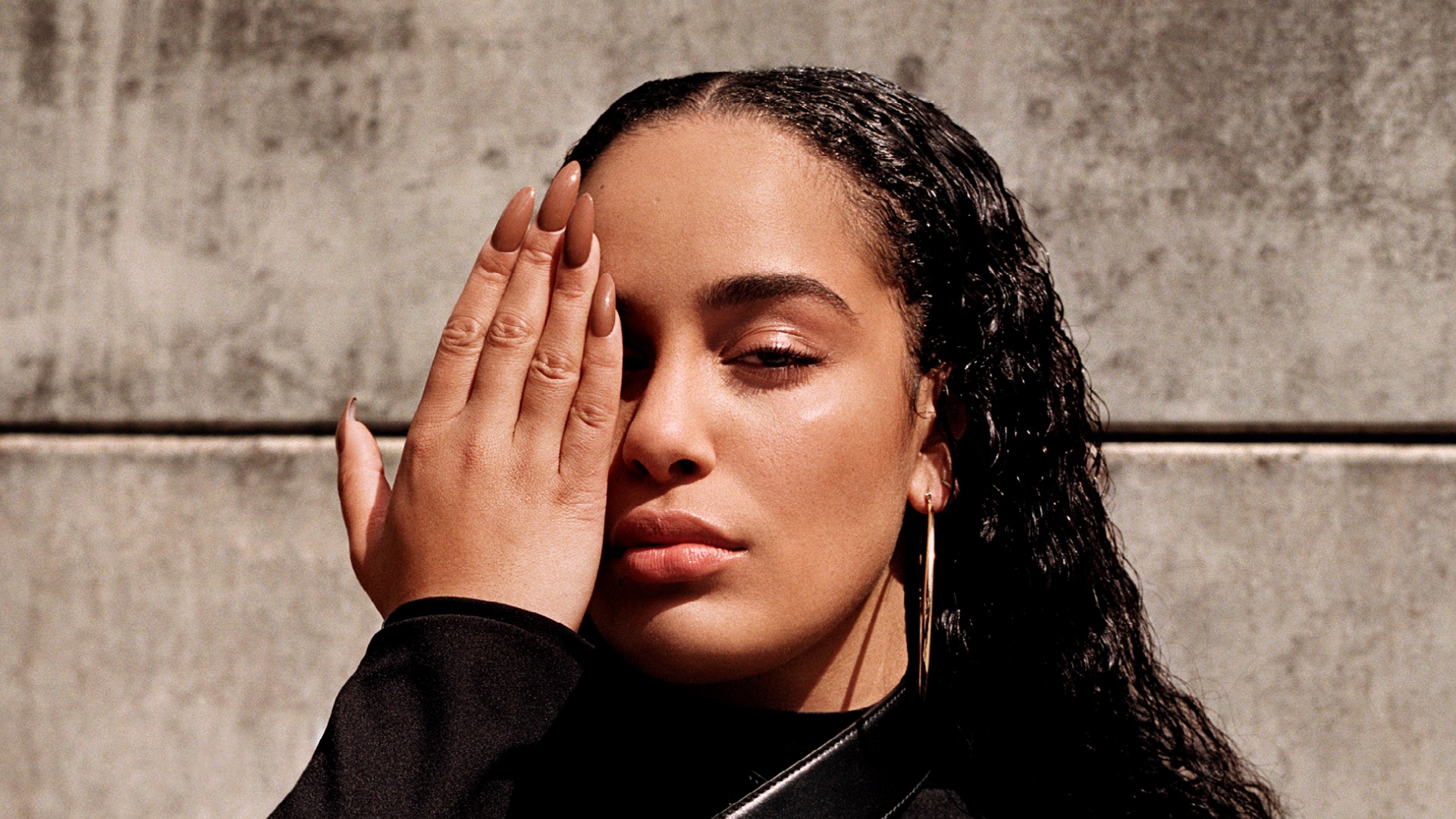This story originally appeared in i-D’s The Summer! Issue, no. 372, Summer 2023. Order your copy here.
When Jorja Smith uploaded her debut single, “Blue Lights”, straight onto SoundCloud back in 2016, she set the world aflame. Her soulful narration of the realities of being young, Black and British, at once aching and soothing, earned her co-signs from the likes of Drake and Kendrick Lamar; her astonishing voice, searing through heavy injustice, picked up half a million streams in a month. The deeply personal album it introduced, Lost & Found, gained her a roll call of accolades, from Brit Awards to Grammy nominations, and before long she was heralded as this country’s newest superstar: a woman who at once echoed Amy Winehouse in her melancholy and Lauryn Hill in her wisdom, yet seemed both staunchly self-assured and proudly independent. At eighteen years old, she was crowned the future of British music; the voice of a generation; a legend in the making.
But, “I never wanted to be famous,” she smiles now. “I’ve always just wanted to sing and write. That’s it.” It’s the sort of phrase that’s often wheeled out by young stars but, when spoken by Jorja, it lands. That might be because she appears astonishingly honest – both in conversation and through her music – but equally because, at 25, ahead of the release of her second album, Falling or Flying she’s realised how little she’s served by the machinations of fame and has stepped away from glitz and glamour and back to Walsall, to the same West Midlands streets that first inspired her.
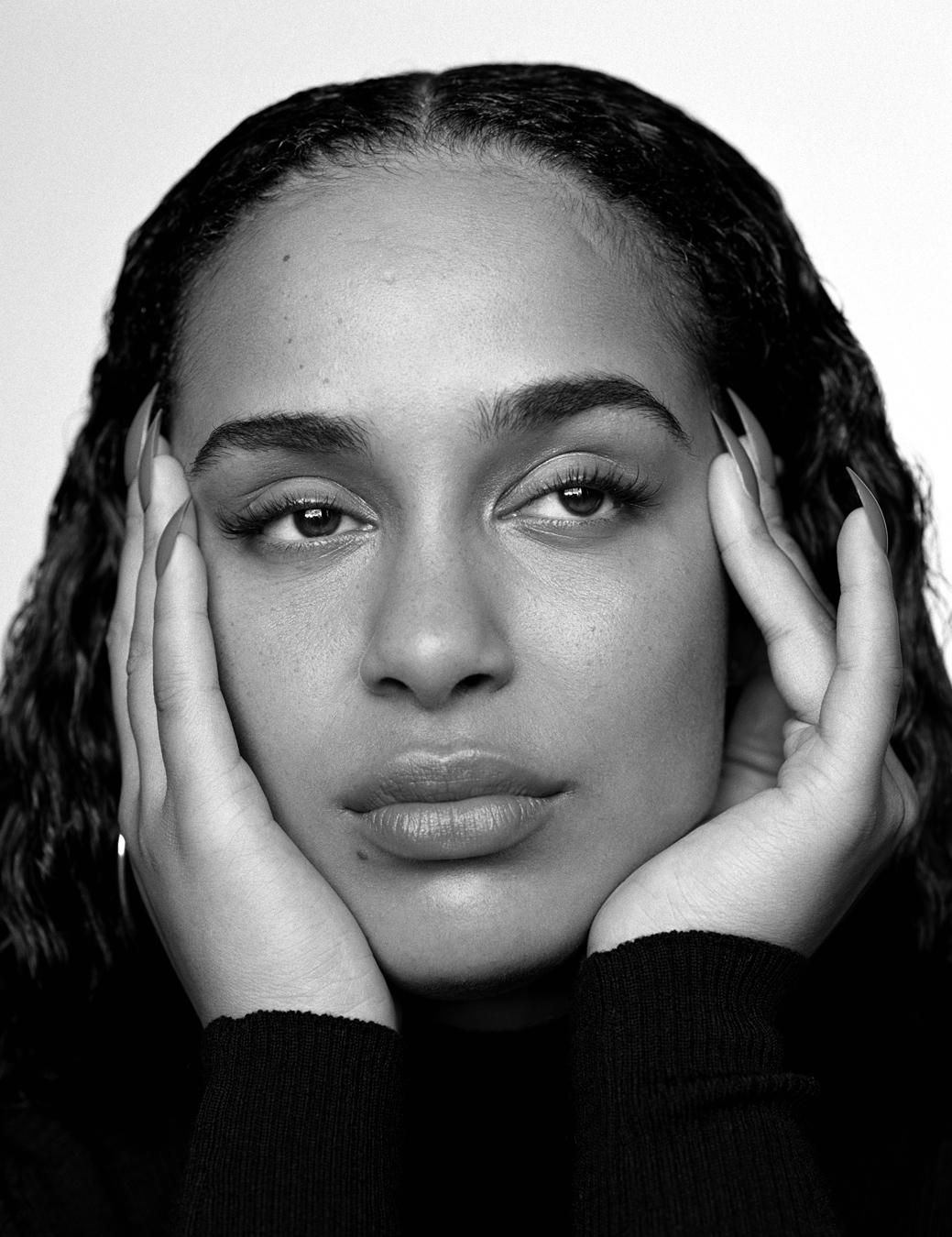
“London served its purpose for me, but it’s not my home,” she explains softly. “I think I maybe made myself feel a bit unwelcome, but it’s really that my heart wanted to be back home. For years, I’d walk my dog for hours every day: I’d get lost in the fields making songs up, thinking of ideas. I’d come home from school and sit at the piano. When I moved to London, I stopped doing all of that. I didn’t walk, I couldn’t see the sky. I didn’t go and imagine. I guess I kind of lost myself a bit in London. But now I’m found.”
Being home works for her. Falling or Flying, which will be released this September, has been written and produced with the female duo DAMEDAME*, one of whom she’s known since she was fifteen, and so is rooted in the safety and stillness she only finds in Walsall. “They’re from home, and we made our own home together in this music,” she explains. “We made our own little world. My album became home. And now I am home.”
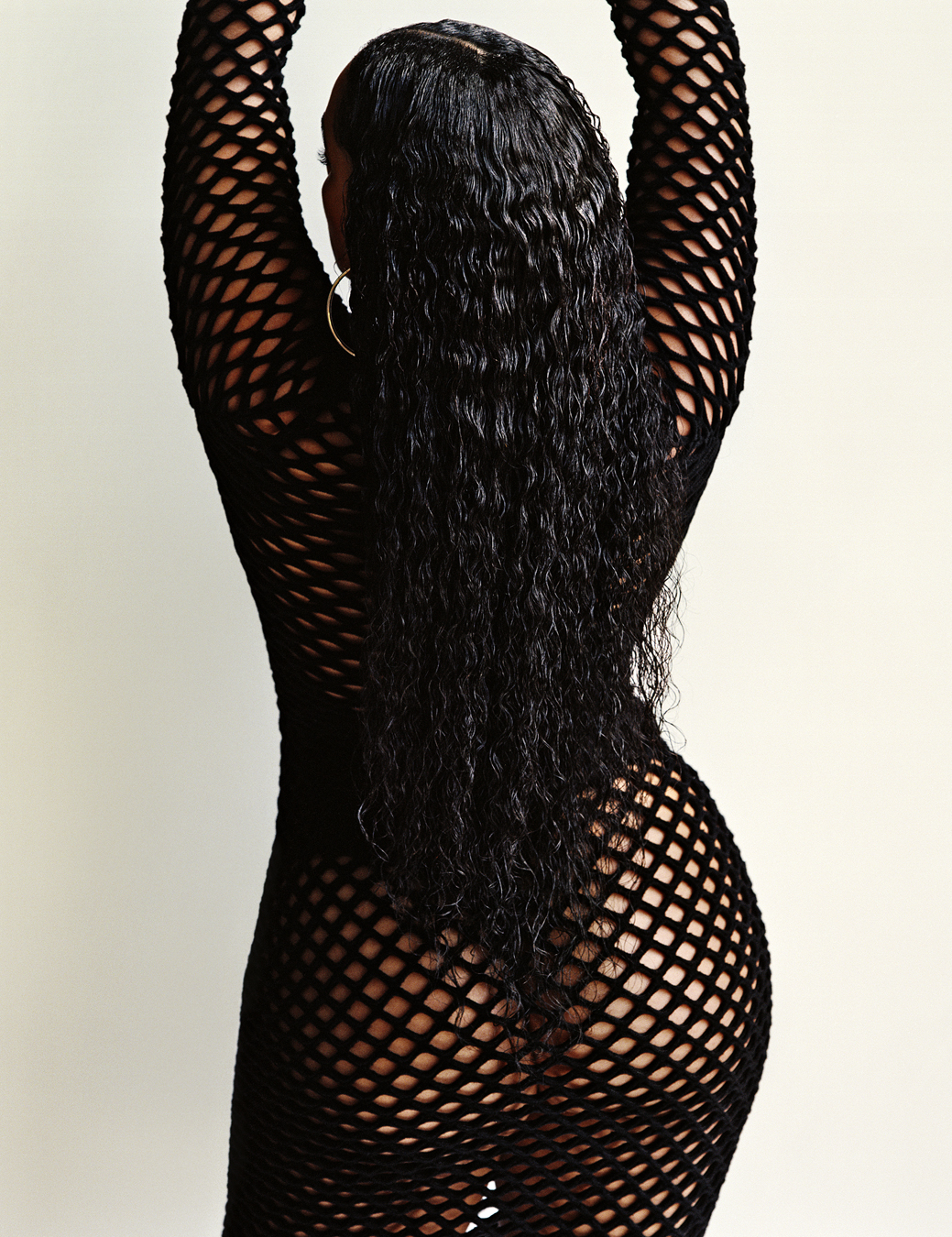
In some ways, hers is a unique story – a local girl suddenly shot to global superstardom – but in others, it mirrors that of young people across the world who, in the process of growing up, momentarily find themselves walking the wrong path. “This is the first time I’ve been around the people I needed to be around,” she continues. “The people I wanted to keep around before were just noise, and never really inspired, motivated me or helped me. They just made me feel a bit more insecure, question myself or doubt myself a bit more. Now I’ve realised with this album, ‘Oh my God, I really know what I want.’”
You can hear it. If one of Jorja’s greatest strengths is the intimacy she distills into sound, this doubles down on it – but underscores her vulnerability with a powerful confidence, and a groundedness she explains is inextricably linked with rediscovering home. “I feel like I’ve stepped into womanhood,” she says. “So I feel it’s natural. I’ve changed. My project, my music’s going to have changed.” Rooted in self-realisation, it’s an album that narrates a young woman finding her way in the world – in her words, “figuring myself out.” It’s richly textured, seamlessly oscillating between swaggering and vulnerable, from melancholic to anthemic. “I’m a Gemini; I don’t have an in between,” she says. “And ‘falling or flying’ is literally how I felt when making this music: Am I doing good or bad? Am I falling or am I flying? Am I happy or sad? My career’s flying, but I actually felt like I’d been falling.” Here, back in Walsall, rooted in her music and sure in herself, she’s set to soar.
Now, she sits down with Alicia Keys: the woman who first inspired her to braid her hair and sit down at a piano – a woman who, like Jorja, lost and then found herself in front of the world.
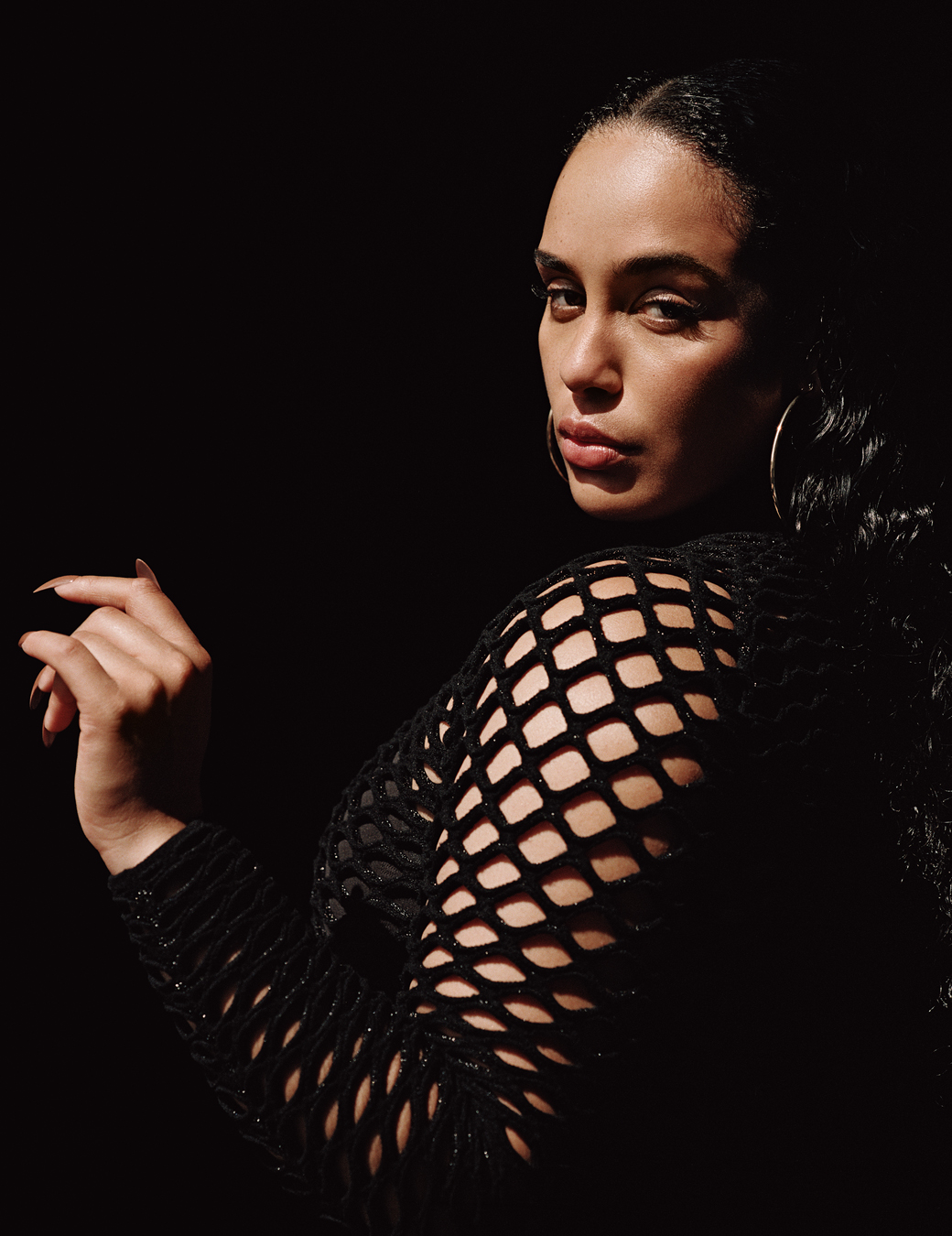
Alicia: Hey. Hey. What’s up?
Jorja: How are you doing? You’re having your hair braided? What style are you going for today?
Alicia: Oh, I can’t even explain it… It’s one of the ones I’ve been dying to do forever. You’re going to love it. As a matter of fact, I’m going to send you the picture first.
Jorja: Please. I want to be the first one to see it – the exclusive. Where are you in the world?
Alicia: I’m in Rio! Are you home?
Jorja: Yeah! On Saturday I got the keys to my new place back home, back in Walsall.
Alicia: So you’re good? You’re in a new place – you’re feeling amazing? You have this amazing new music… I’m so excited.
Jorja: Have you listened to any of it?
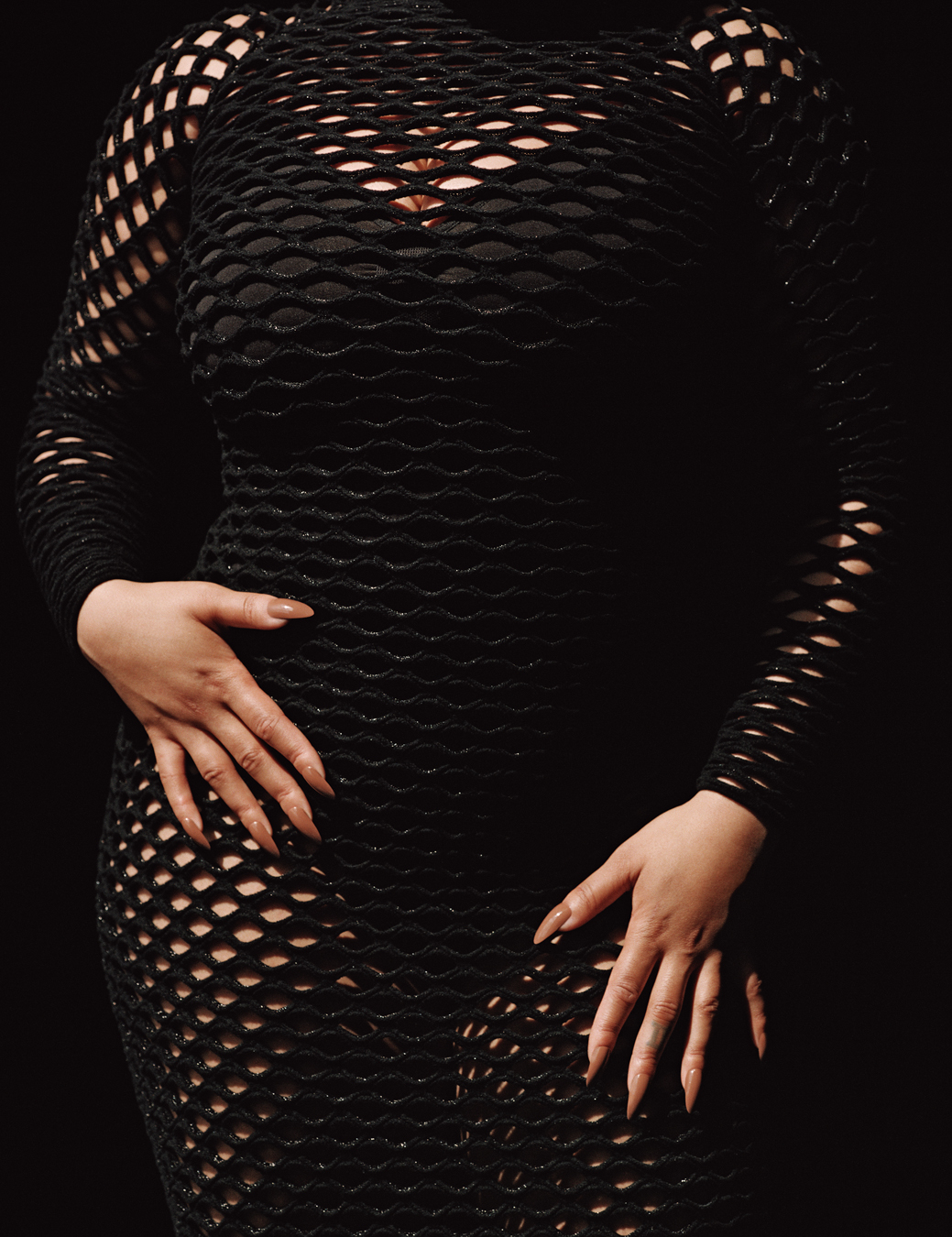
Alicia: Yeah! It’s feeling really, really good. I mean, you always had your own vibe and I think that’s what’s so awesome about you. People resonate with your energy, your vibe, your music because it feels so purely you: you’re the one writing it, you’re the one feeling it and you’re the one living it. You really feel that in this; it feels like you’re really creating and making a statement about who you are and how you feel. Sonically, it sounds like it really belongs together. How has this process been for you, as a woman and as an artist?
Jorja: Well, everything you’ve said is exactly what I wanted people to feel from it, because I feel like it’s a statement of figuring out who I am right now in this moment, and I feel like I’ve become a woman within the process of making this album. It’s mad because most of the songs are produced by my friends, this duo DAMEDAME*. It’s all them and P2J has done a few songs, too.
Alicia: Did y’all rock together from the first record?
Jorja: No – but I’ve known one of them since I was fifteen. They’re from home; one of them’s from Birmingham, the other’s from not far from Walsall. Just before lockdown, we met up and they played me some of their music and I was like, ‘Oh my god, I can’t believe we haven’t gotten into the studio together’. Then, from 2019 till now, I’ve just been with them. Some of the songs are freestyle, and sometimes we’ll write all together and they’ll help fill stuff in if I don’t really know what I’m saying. They even got me back into playing piano. When I moved to London, I had one in my room but everything was on top of each other and I guess I kind of lost the motivation to play. I got in with producers and stuff, so I wasn’t just writing songs by myself, and I was really, really shy to get on the piano. But now I bought a piano and I’m back.
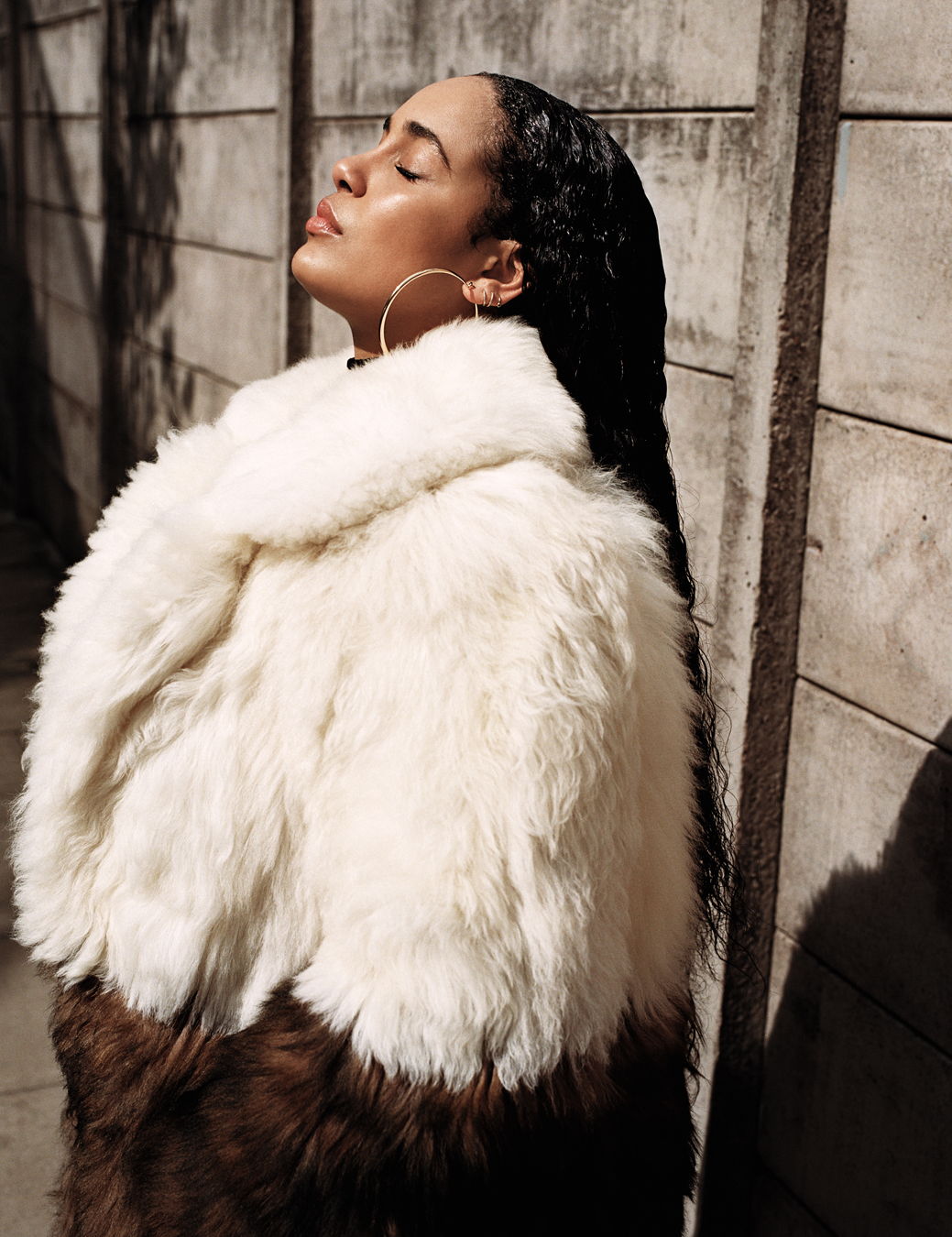
Alicia: Good.
Jorja: Yeah, this process of making an album was challenging but so fun because I’ve never written an album this way. My album before was songs that I’d written from when I was sixteen to twenty-one, putting them all together.
Alicia: So this is the first time that you are creating it more in the flow, more on the spot. How does that feel for you? Does it feel like you can do that because you feel more confident?
Jorja: Well, I was so confident when I first started because I was so naive and I’d just do anything. Now, I’m overthinking a bit more. I can get scared of putting out music, worried what people are gonna think. I think it’s an age thing. Maybe now that we know more, we overthink more. But now that I’ve put the first single out, I feel so much more confident with where I’m going. And it’s great having music that is from the time you’re actually in now, not music you wrote seven years ago. It feels so different.
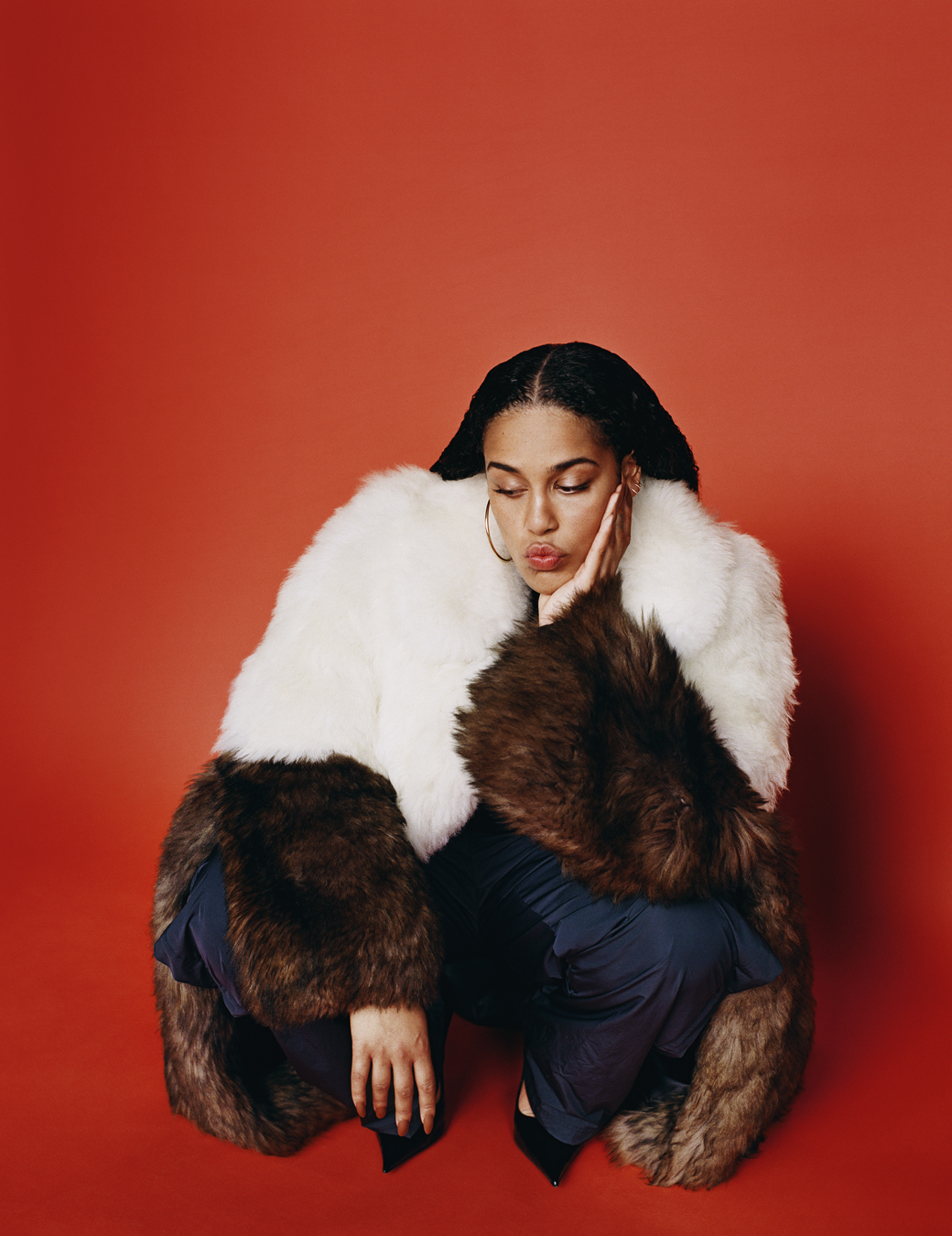
Alicia: Right. I know exactly what you mean, and the feeling that you’re describing as well. I recognise that at-the-very-beginning place. I felt so confident. I knew exactly what I wanted; nobody could tell me nothing. I was so clear. Then people started to actually like what I did and react to it and I started to be in this creative world, in a space where people had a perspective of me or a perception of me. And I found that that same thing happened to me – suddenly I didn’t feel as confident, I didn’t feel like I was so sure. I didn’t feel like I knew exactly what I wanted. I was overthinking and I was worried about what people would say or their opinions about me. It took maybe eight years, until I was in my thirties, that I started to feel like I actually got my ground again. It took so long for me to get back to the beginning.
Jorja: You’ve given me goosebumps. It’s so mad growing up in front of the world. Other people can just grow up, make mistakes, not know themselves…
Alicia: It’s true. How do you find the place where you can access who you are? Is it that you just feel it, and when it feels good it’s right? Or do you have to do things that bring you closer to who that person is? Or are you comfortable just not actually knowing and going on a journey?
Jorja: One thing that I changed is that I’ve come back home. I feel still here, and calm. I’m not used to the noise in London – cars, helicopters, everything. And what’s different now is that, if I’m feeling anxious or scared, I let myself feel that. But I’m not in that space as much, because at home it’s all so different. Like, the day after I released my single, I went to the café near me for breakfast. The ladies at the café know me, and they’re like ‘Jorja! I’ve been singing it all day! I love that song!’ Usually, I can get a bit overwhelmed when people do that. But it felt different from them, because I’m home. It’s not people trying to be my friend, or wanting to take pictures. They’re just proud.
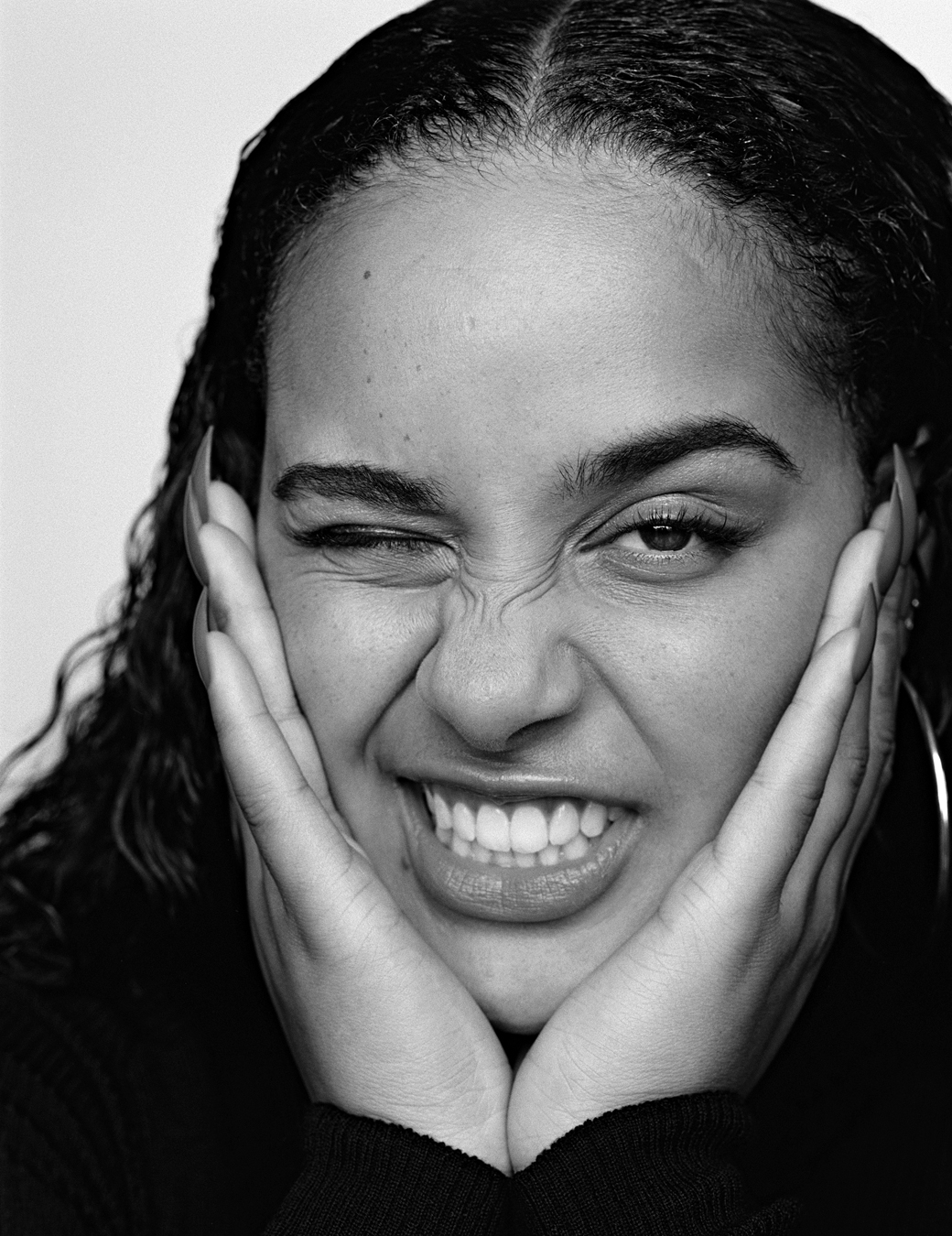
Alicia: They’re just happy for you. I love that so much. I feel that. And that’s so beautiful. I’m so happy for you because I feel like I lost myself completely in so many ways. I feel like I cared so much about what the closest people in my life thought, and I followed their manipulations and suggestions. There’s a healthy way of having people have input, getting people’s thoughts and opinions and perspectives, but I think I was in an unhealthy relationship with it, to the point where I couldn’t determine for myself what I really felt – I felt they knew more than me or better than me. Then, at a certain point, I felt angry because I felt people were trying to get out of me what they wanted – even though it was what they thought would result in the best outcome, in the best thing for me. But I think that anger actually helped me, to be frustrated enough to want to change it. So I think sometimes going too far or finding yourself in a place where you are not feeling so great is actually a good thing because it’s such a signal, such a signifier that something’s wrong. I started to realise that I needed to be more in touch with myself and I needed to be able to have a relationship with myself. No one had talked to me about that. Nobody had encouraged that.
Jorja: I feel you. Ever since I started doing music, I’ve had boyfriends. This is the first time I’ve created music and finished it on my own. I clocked, oh my God, I just used to have this noise all the time telling me, ‘why did you do something like that?’ And when I came away from that, and I didn’t have the noise, I realised finally what I actually think, how I feel, how proud I am or maybe how anxious I am – but because of how I feel, not because of how someone’s made me feel. I had a lot of people telling me how to be me and then I clocked, I don’t even know how to be me. So how are you possibly telling me what I should do, how I should be?
Alicia: That’s right. That is exactly right. Did you always want to be an artist? Is it something that you knew since you were a kid?
Jorja: When I was at school and it was time to decide about going to uni, I just realised that I couldn’t. I just want to sing and make music. I’ve been singing and making noise since I was like eight. I wrote my first song when I was eight, started playing keyboard when I was eight. It’s funny because, in my school yearbook, I got ‘most likely to be famous’ because I was always singing. I always wanted to make music, but I never wanted to be famous. When I was eleven, we had this talent show at a school assembly and I sang “Lean On Me”. Everyone came up to me all the time afterwards, and was like ‘Jorja, sing!’ I couldn’t deal with it. After that week I was like, ‘I’m never gonna sing again.’ It was too much. So yeah, I’ve always just wanted to sing and write. That’s it. But everything else… I mean, I’m so grateful and blessed. But there’s no handbook for it.
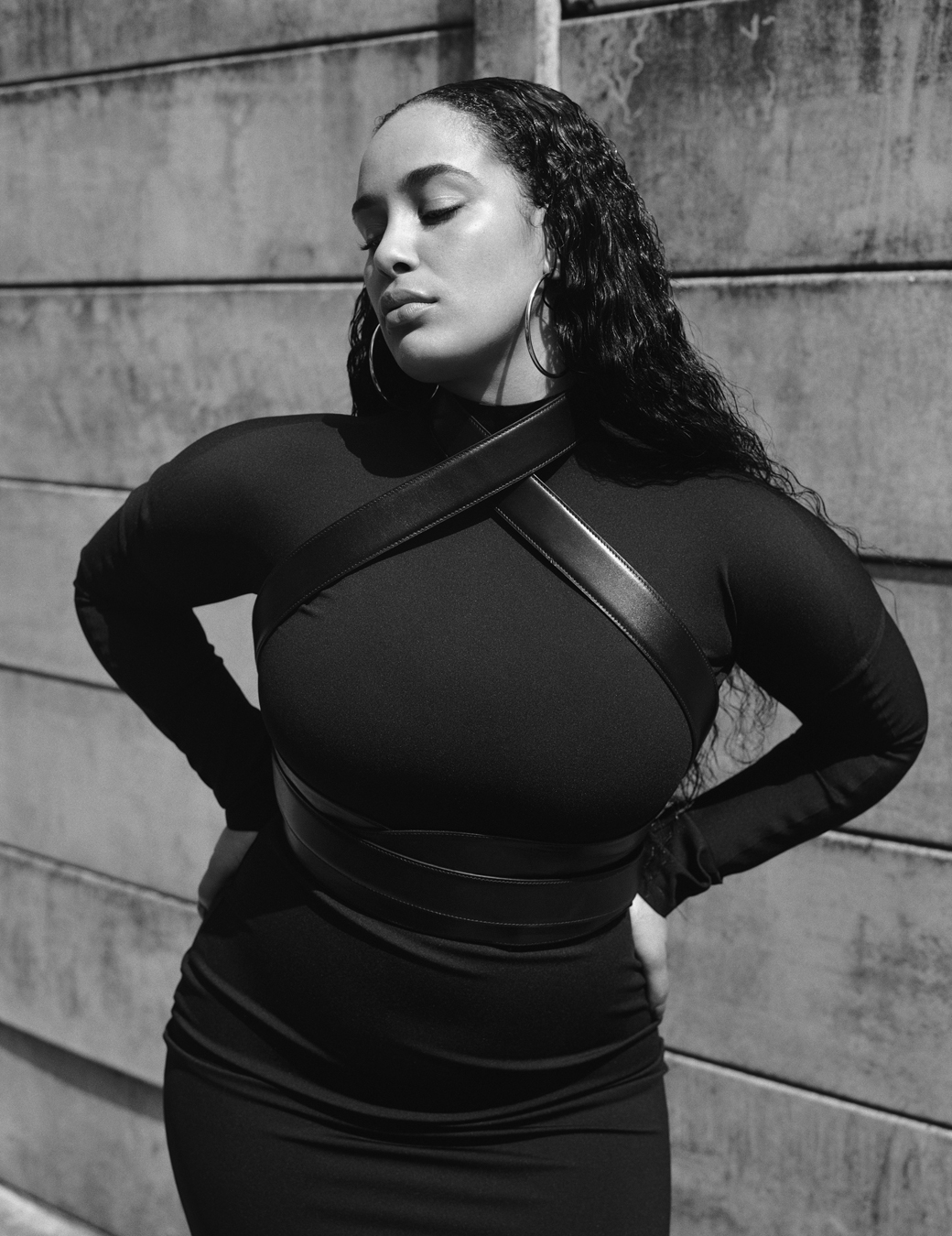
Alicia: Not for anything. Not for any part of life, not for anyone. We’re just learning as we go, learning on the job, just figuring it out. I remember the first time that I saw the On My Mind video, which was one of the first times I was introduced to your music. I remember that I loved it so much – not only the song, although of course I loved the song, the song is a big vibe – but what I loved the most was that street energy. The baseball jacket, chilling around whatever that neighbourhood was. I felt like this was where you grew up, these were your folks, this was your energy, this was your vibe. The jacket was oversized, you had your braids – you were just vibing. I must have recognised some of myself in that. In the very beginning, when people first saw me, I was so boyish – and I love being boyish, by the way, to this day. That’s just like how I vibe and I love it, it’s where I feel comfortable. So I recognised that masculine energy in you and I was like, ‘ooh’. What do you remember about yourself in that space?
Jorja: Isn’t it just the beauty in being comfortable? I just love being comfortable. I don’t have an in between, either. It’s either comfy or sexy. I can’t do tight jeans. It just has to either be tracksuits or glammed up. You know what’s mad, though? The people in the video were my new friends in London, but where we shot it was similar to where I spent a lot of time growing up. One of my friends had a flat round the corner from my house and we chilled there a lot and it was quite similar to that. I’m just replaying the video in my head. I had a lot of fun.
Alicia: I could feel it. I guess what it makes me think of is that, as time progressed, I definitely got more in touch with my femininity. I got in touch more with my womanhood, with different shapes and silhouettes that were accentuating my womanly curves. I really started to understand the balance there. Do you feel that’s just a part of growing up? Or do you feel like the industry makes a woman feel like she has to look a certain way in order to have a certain amount of attention, or a certain amount of being considered beautiful? What’s your relationship with beauty and yourself within this industry?
Jorja: I think that the part about the industry always having an opinion is always there, but I’m very much like – if I feel good, I’m good. It don’t matter what people say, because everyone’s always going to say something anyway. It’s mad because, when I came out at eighteen, I was so little. Now I feel like I’ve become more of a woman, I’m stepping into something which maybe I’m not used to. More curvy… Just, I’ve grown more. I’m so glad I’m okay when it comes to body stuff even though I know that people will always have a lot to say. But I’m quite good at it only being me who can really make myself feel a way about how I look. They will say you are too skinny or you are too big – well, you are always going to be too something. So you may as well ignore them because they’re too something as well.
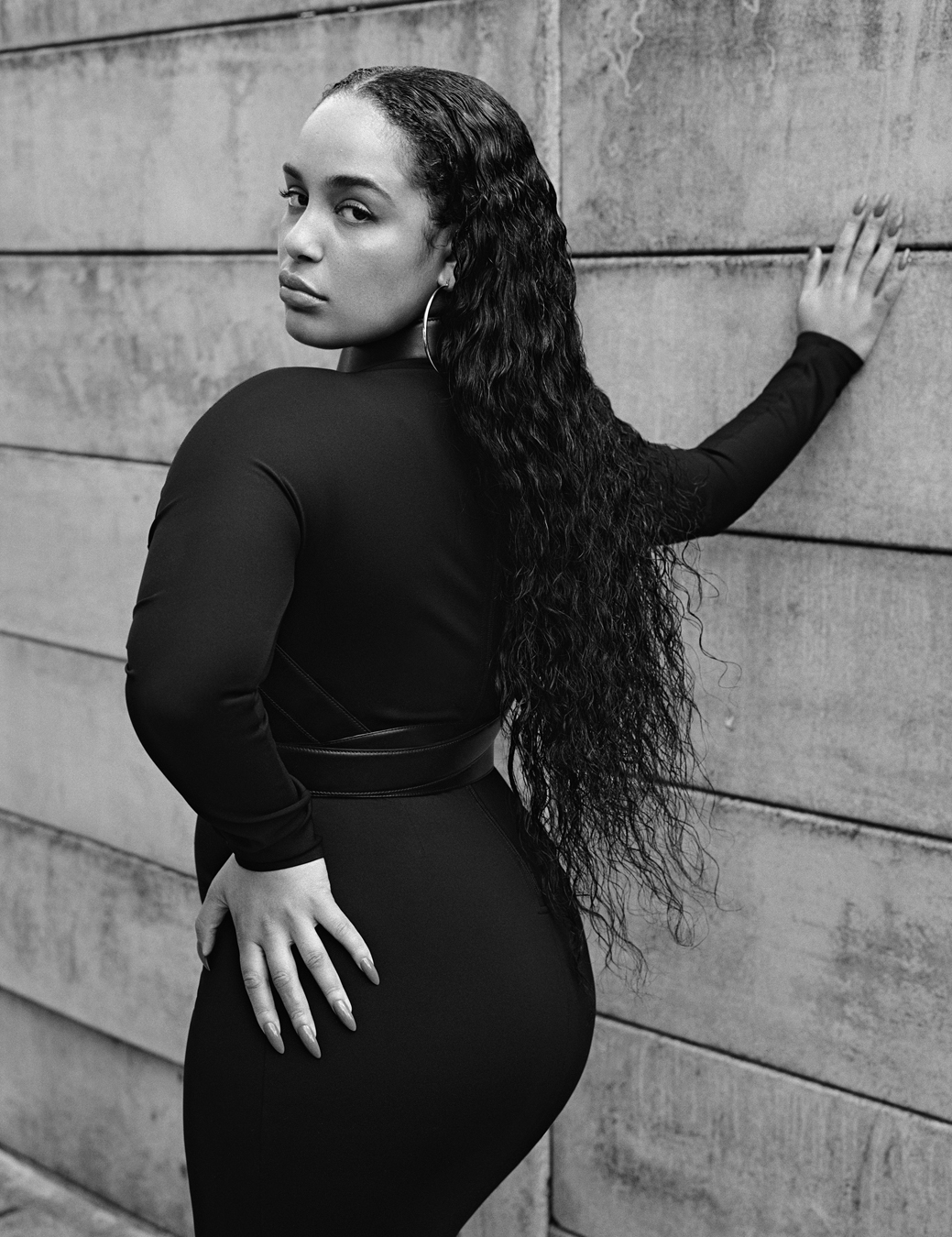
Alicia: I am so happy to hear you say that because I was just thinking – it’s not just the industry, it’s the world. It’s these ideas that we adopt because of what we see. There are all these different energies around us and it’s hard to be like, well, am I still beautiful if I have my tracksuit on? But what’s so beautiful is to be able to keep growing and exploring, and it feels like that’s what you’re saying: that you’re comfortable exploring and growing and going in different directions and meeting new sides of yourself. I love to hear you say that you never felt influenced by the outside world’s projections on you because I definitely did, a million per cent. Looking back, I definitely felt like I had to live up to some type of standard, or some type of look, or some type of just being. Even just being able to go outside in your whatever back in your neighbourhood, where you feel like you’re amongst your family and your loved ones and people that really care about you, so you can go to the café and just pull up and have your breakfast.
I think that says something really good about finding your community, but most importantly about finding that peace in yourself and knowing that this idea of perfection is never going to exist. To your point, you’re always a little to this, a little to that. In your song “Try Me”, you actually said: nothing is ever enough. I really wanted to ask you about what you meant there…
Jorja: Exactly that. That song was really me just talking about how, in the last few years, people have had so many opinions and I can’t win. Nothing is ever enough for the world, for anyone. People expect you to change from what’s going on in your life, from the success of what you’re doing. But not much has changed for me – really what’s changed is everyone else, how the world is around you.
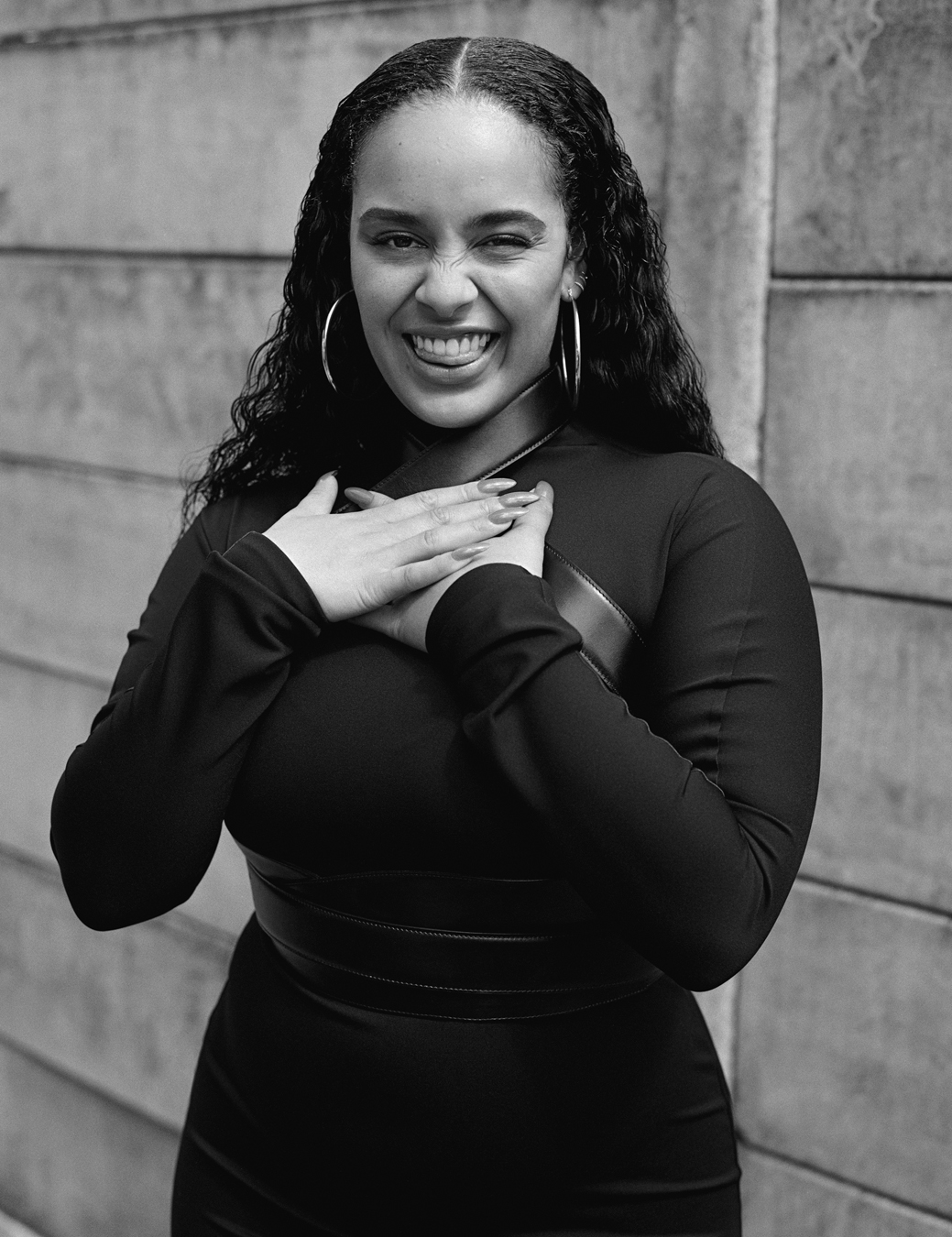
Alicia: It’s not that you change, it’s that how people react to you changes.
Jorja: Yes, that. I felt angry but powerful writing that. It was fun because me and the girls wrote it together and they’ve seen how things have changed for me, but they just see me as Jorja. And when I say “Think you can take me through the fog where I’m no challenge”, it’s talking about how people can be behind their screens and just say whatever. I am my biggest critic. But in lockdown, I did kind of get affected by things; I got a bit less sure of being my own biggest critic and I let other people be able to be my critic. Now I’ve got back to being my own biggest critic and not listening to anything.
Alicia: You can’t be my critic. I’m my own critic. I got my own critic. You don’t even have that power. I think that’s the thing, we give other people a lot of power. They don’t deserve it: who said that person is supposed to have that much effect on you? For any of us, by the way, because we’re all living in such a digital world. For any girl that’s reading this, or seeing this: who said that that person is supposed to have that big an effect on you? At what point did we give that person so much power over us? So I think that’s something that’s hard to remember, but I’m glad that you said that.
Going back to your voice: everybody knows you have this kind of smoky, jazzy, but also super modern, super cool vibe. Where in the world did that come from? Is it just inside of you?
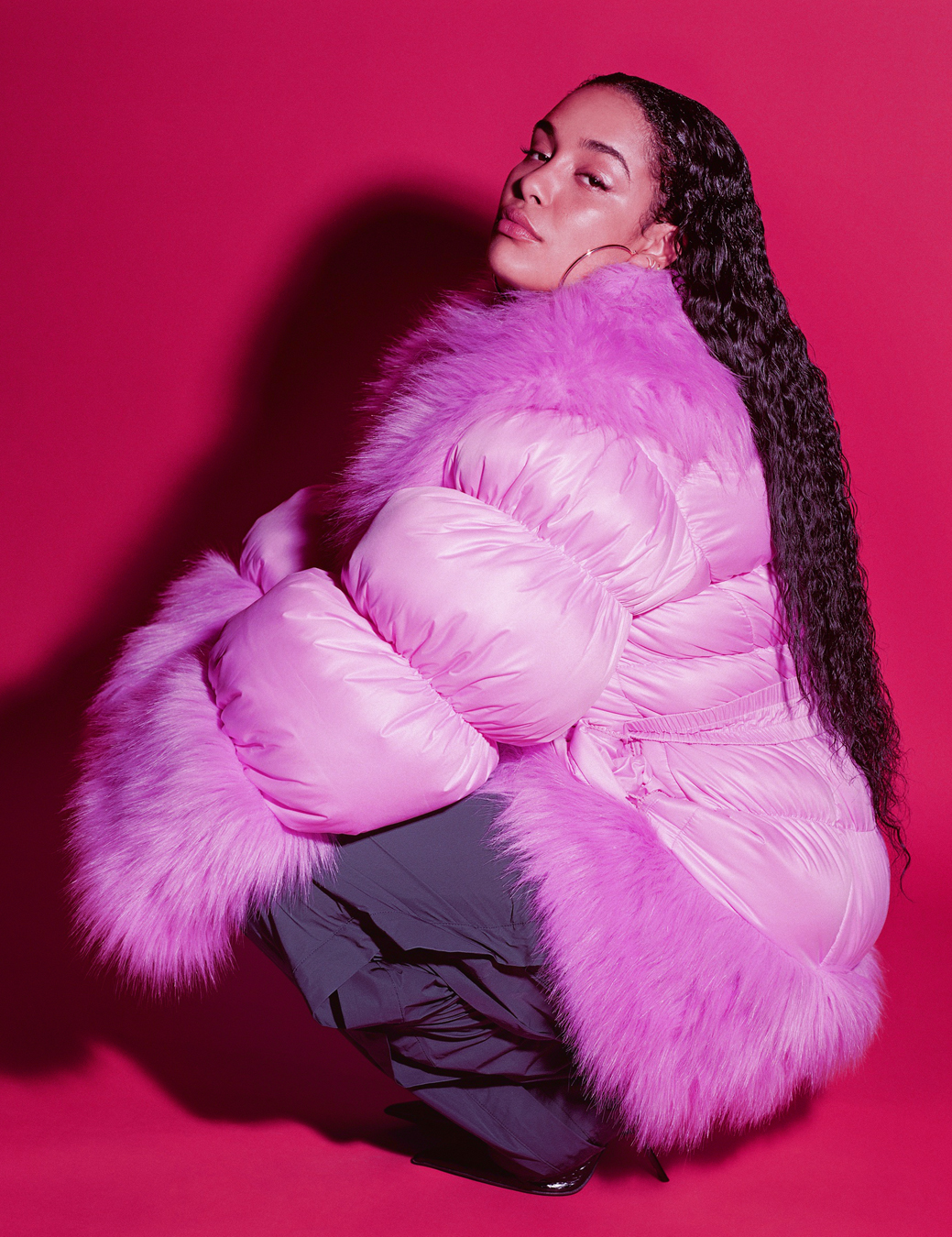
Jorja: Ever since I was little, I’d sing everything. When I learned to talk, I’d sing. When I learned to read, I’d sing. My mum used to say that I’d walk home from school and be singing, “the sky is blue, the trees are green”. When I could read and we’d walk past graffiti, I’d sing the graffiti. I grew up with so much music playing around the house – all kinds from reggae to ska and hip-hop, R&B, jazz, indie, punk… Anything, you name it. And I always wrote. When I was eight, I sang “Silent Night” in a nativity play for my church. It was the first time my dad heard me sing and he was thinking, ‘oh she started too high, she’s not going to be able to sing the rest of the song’ – but I sang the whole song. One of his friends at the church who’s a gospel singer, she turned around and was like, ‘she can sing’. Then my mum got me a keyboard because I used to listen to you so much. I’d have my hair braided, and I started writing to chords on the piano. I love Amy Winehouse – I was always listening to Amy, to Damian Marley, to Nas. I’d just sing and stuff would come out without even thinking. You just do it, right? I can’t explain how it comes out. I don’t know where my voice is coming from.
Alicia: I think all of those influences you just said are pouring out of this record. I feel like I’m hearing all of it. I’m hearing ska, reggae, I’m hearing the soul, I’m hearing the jazz. I’m hearing it all mixed up in this beautiful gumbo of sounds and it’s really, really fresh. I’m really loving it.
Jorja: I can’t wait to do it live.
Alicia: It’s so much fun to be live.
Jorja: Trust me, all I love doing is singing, writing and performing live with people. Everything else in between I’m like, ‘Oh my God, please, I don’t want to do that.’ I don’t like recording either. I just like doing it in the moment. What I learned from this process is that I need to record when I’m in the moment, not write it and go back to it.
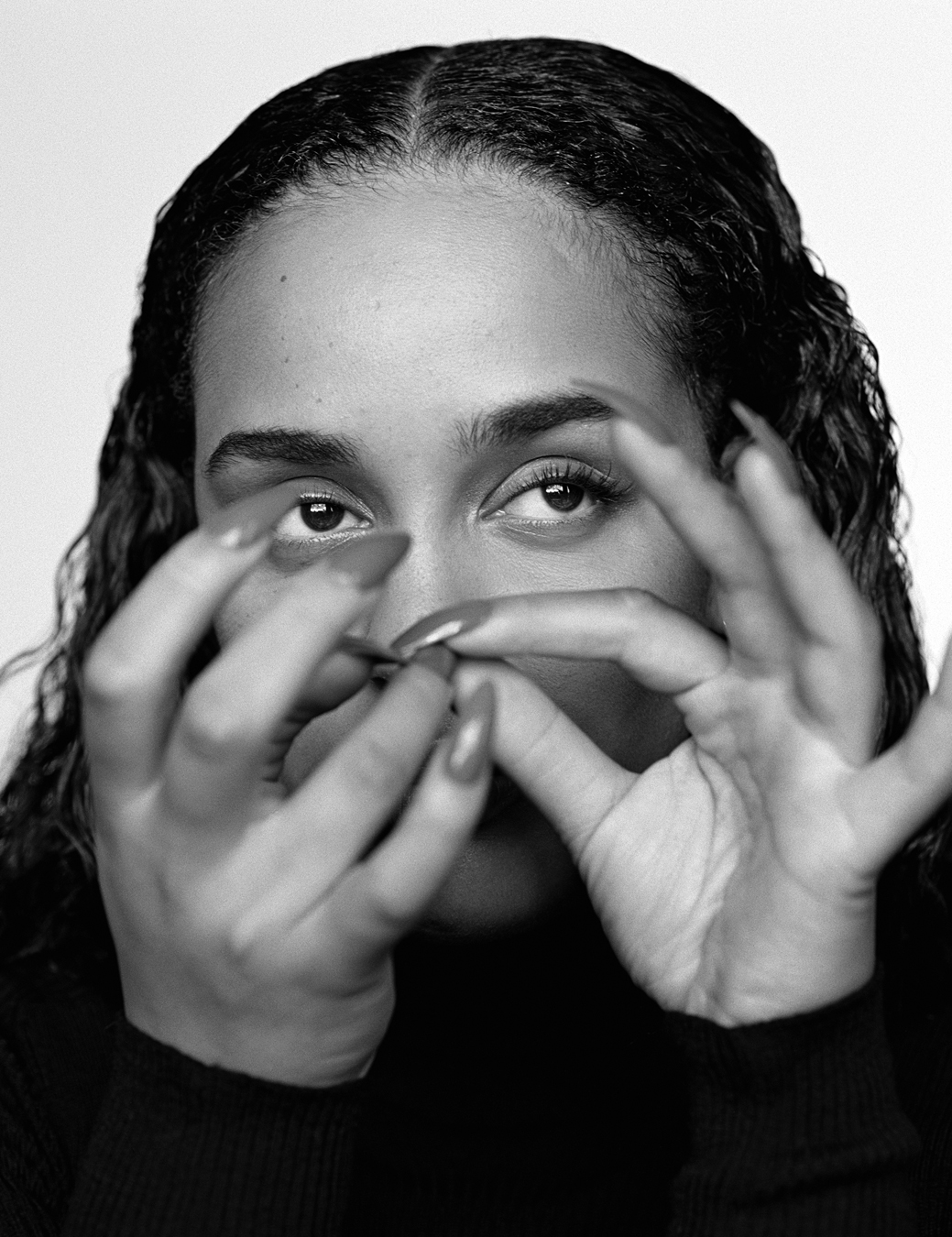
Alicia: That’s probably a big learning curve from this album – and I think you can feel it, that you capture the energy of the moment, which is amazing. I wanted to ask: I feel like every song that you do is personal to you. Does it feel like you’ve been able to go even deeper with this album, or does it feel like you’ve actually been able to lighten up?
Jorja: Both! I’m at a different stage in life to where I was when I did the first album so I feel like, I don’t know if I’m going deeper, it’s just that I am deeper; I’ve experienced more. Before, I’d be writing about observations, or I’d exaggerate stories. But now, for the first time, I’m in the moment with the songs. These songs I’m writing, I’m living them. I’m literally in the songs.
Alicia: Do you sometimes worry about what you’re sharing? Because you’re so in it, because it’s so personal, does it ever feel too vulnerable?
Jorja: What’s mad is that I don’t like talking, doing videos, interviews, films – but I will pour my heart out in songs. That’s what feels safe. I can feel vulnerable when I’m in the studio sometimes, if I’m getting to a place where I feel sad because of what I’m talking about. But I know I need to write that because someone’s going to need to hear it, and so I’m just happy that I can. It’s so interesting how confident I am with my music. Everything else, no. I don’t talk, but let me sing and we’ll be good.
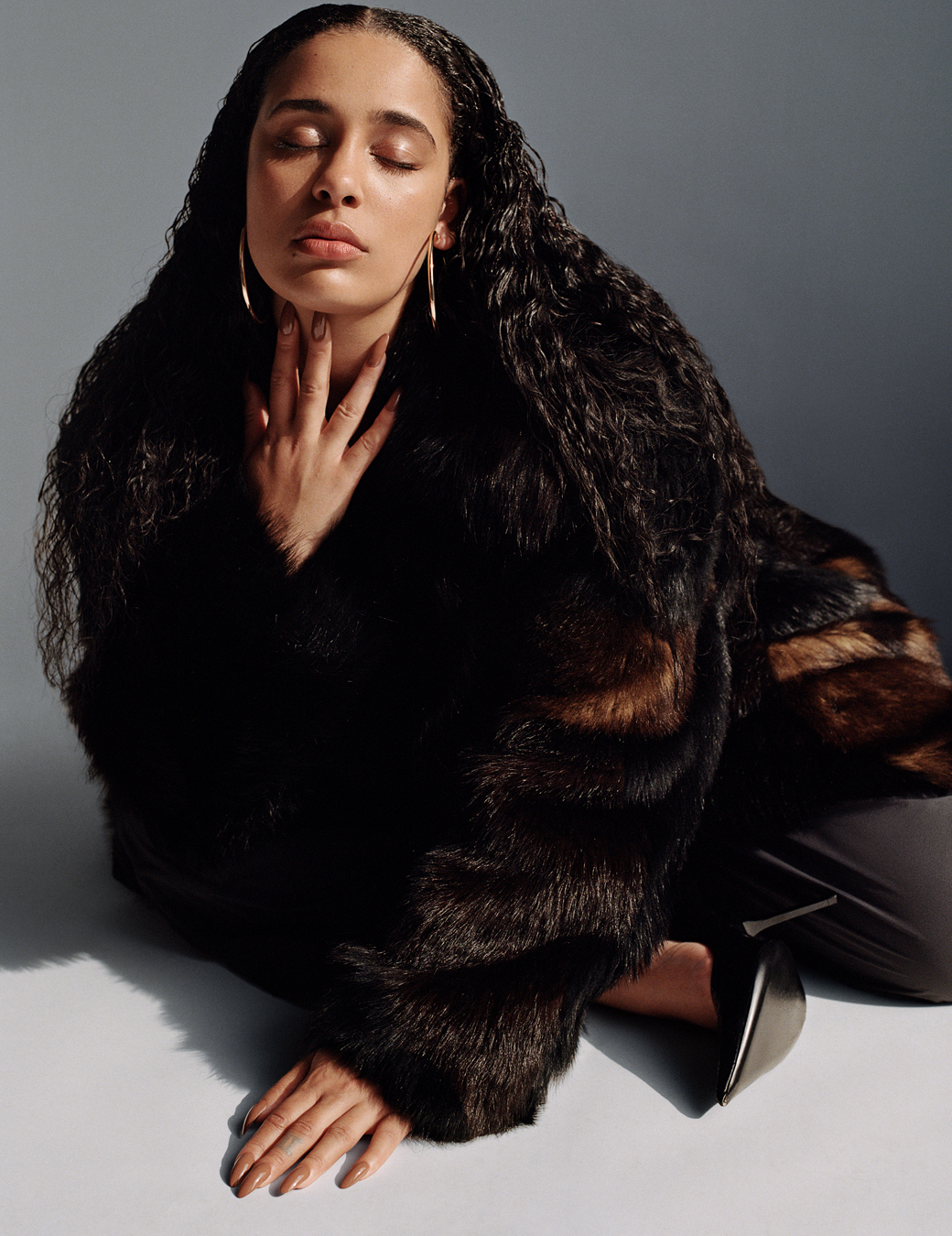
Alicia: I love that. What do you want for yourself right now?
Jorja: I just want to keep this energy I have, which is just still and content. I just want it to keep flowing and only get better. That’s what I want. I know that there’ll be lows and stuff with this release, with this project, with going on tour, whatever. But I just want to be able to get back to an excited place. Still, but still excited. Happy. I’m just gassed.
Alicia: You want to continue just staying right in that gas. I was so glad that first time we connected, it felt so pure, and it remains pure, and I love it. I know that it’s a lot to navigate and we need people who we can just share the real thing with.
Jorja: When connecting with you, I felt so much more like, ‘Oh my God, someone who’s been through it all before and who I can relate to so much.’ It’s a journey.
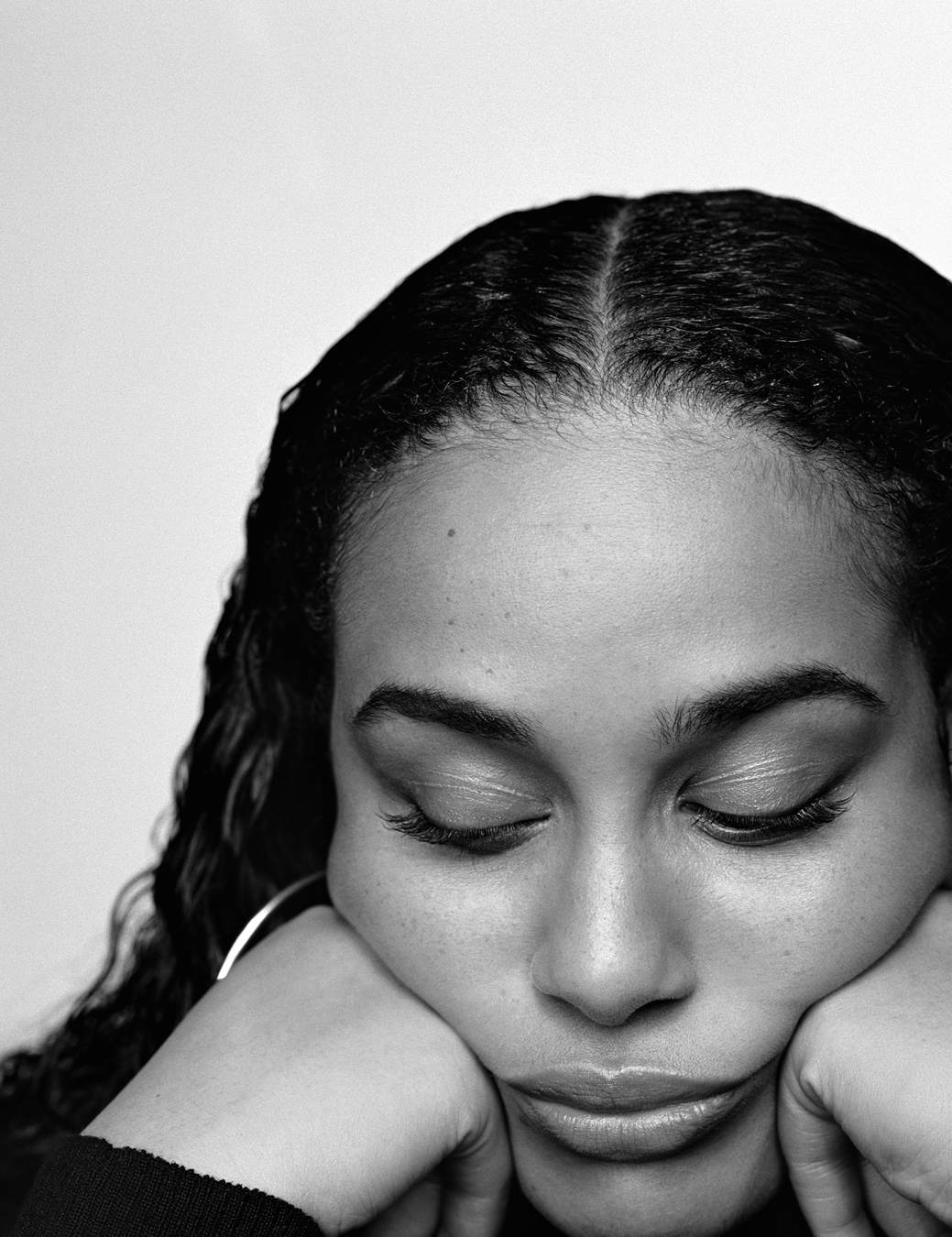
Alicia: Yeah, it’s a journey and it is going to ebb and flow. I think the most important thing I’ve learned is the simplest but the most potent: go with how you feel. If it feels great, keep going. If it doesn’t feel great, be brave enough and love yourself enough to say this isn’t feeling right for whatever reason. I think a lot of times, especially as women, we try to make things right – like, I can figure out how to make this right. It’s not right, but maybe if I talked about this more, or maybe if I stop doing this or told them this, then they’ll finally change. But just hold yourself high enough to know that you deserve to feel good, and then go from there. Don’t take so long to change stuff. If you’re feeling good, then you’re following the path that’s meant for you. And if it feels bad, it’s not meant for you.
Jorja: I love what you’re saying because it feels so good to just act on how you feel, because no one’s you at the end of the day. No one else has to deal with it if you said yes to doing something.
Alicia: That’s so good what you just said: nobody’s you. That’s right. Nobody knows how you feel. Nobody knows the answers better than you.
Jorja: They can’t. I used to be easily swayed because I just want to do everything and I want you to be happy. But then I clocked, hold on. I was doing so many things and I wasn’t that happy. So let me go back. Who needs to be happy? Me.
Alicia: Come on, baby! I’m happy because we’re sisters, and I’m so happy for this music that’s coming. The music is fire. It’s going to really just bring that energy to the world. I’m so excited for everybody to hear every tune that you’ve been working on and all the ways that you pour yourself into this music. So congratulations.
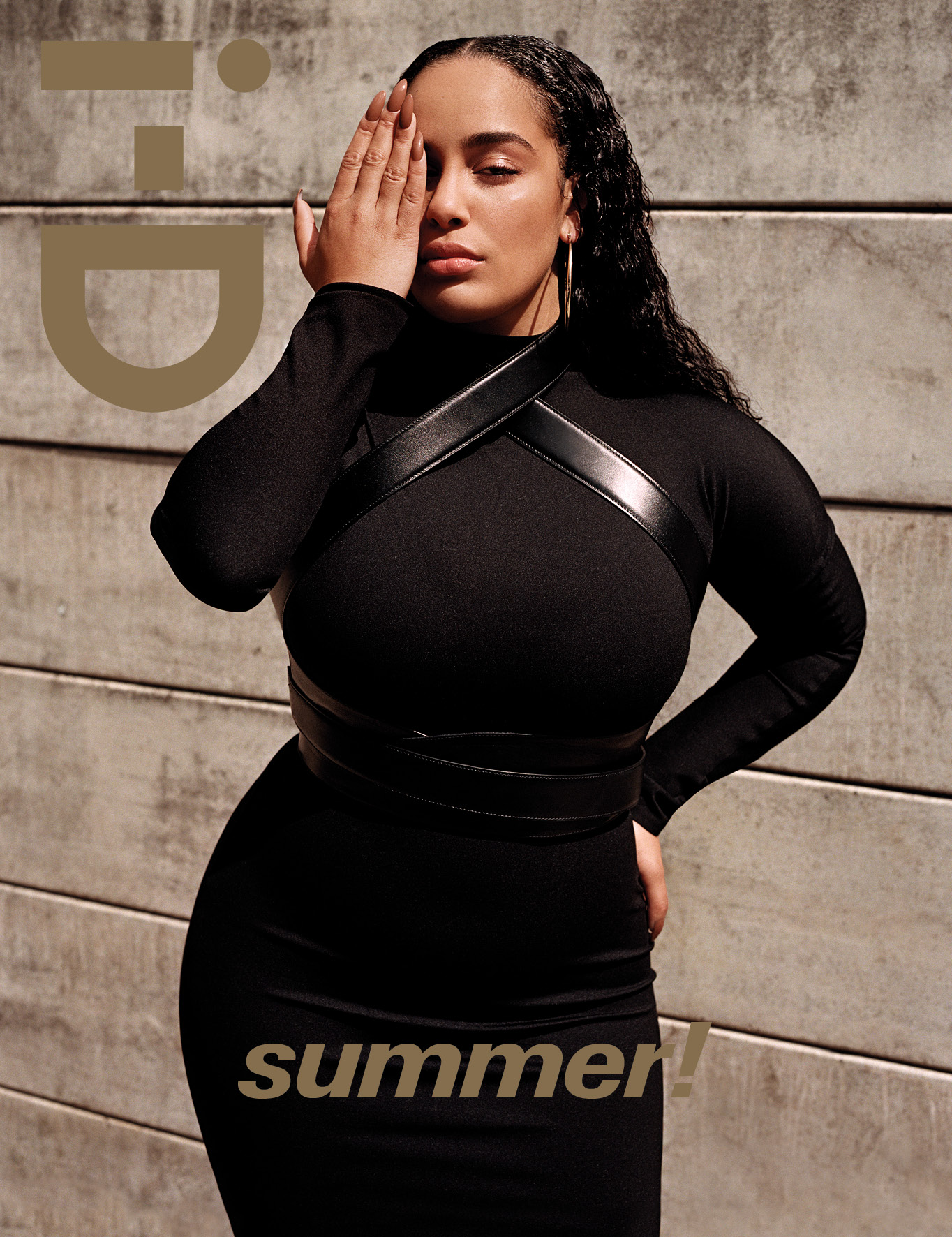
Credits
Photography Alasdair McLellan
Fashion Alastair McKimm
Hair Danielle Igor using Igor Hair and Oribe
Make-up Lynsey Alexander at Jolly Collective
Nail technician Jenny Longworth at Streeters using Sisley
Photography assistance Lex Kembery, Simon Mackinlay and Jess Pearson
Fashion assistance Taylor Wood and Emily Jackson
Make-up assistance Phoebe Brown
Production Laure Lo’r Webb and Ania Juszczyk at Partner Films
Production co-ordinator Luke Marchant
Production assistance Ash Renshaw
Casting director Samuel Ellis Scheinman for DMCASTING
